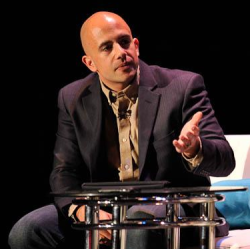 Brooklyn Bridge Ventures, a nearly four-year-old, seed-stage venture firm that’s solely run by founder and general partner, Charlie O’Donnell, just closed its second fund with $15 million, up from an $8.3 million debut fund in early 2014.
Brooklyn Bridge Ventures, a nearly four-year-old, seed-stage venture firm that’s solely run by founder and general partner, Charlie O’Donnell, just closed its second fund with $15 million, up from an $8.3 million debut fund in early 2014.
Yesterday, we talked with O’Donnell about what the process was like, whether the New York venture scene will be impacted by the $3 billion sale of e-commerce company Jet.com to Walmart, and how a small operation like Brooklyn Bridge Ventures can make an outsize impact on a shoestring budget.
TC: We sat down last November and you’d mentioned that you’d circled $13 million or so for this new fund.
CO: I estimated that I had about $13 million in estimated commitments, and we didn’t go into detail on what that meant. For me, it’s a spreadsheet that has a [potential investor] in the fund, a number, and a percent chance of closing, much like a sales pipeline.
Comparatively, my first fund took 9 months from announcement to first close, and 15 months from first close to last close. This fund took 6 months from first close to last close, with 70 percent of the capital commitments coming in the first two closes.That all seemed super fast to me.
TC: We were wondering if you ran into trouble this year with investors; some of the institutions that fund venture firms say they were mobbed earlier this year by firms that raised funds a couple of years ago and that didn’t want to be the last in line for their new fund.
CO: Most of my [investors] aren’t in any other funds. An endowment that wrote me a $1 million check certainly is. And I think my lead investor is in one or two other funds, along with maybe a handful of individuals [who wrote me checks]. But they’re definitely in the minority. At my size, I’m not talking to many traditional [investors]. I have no idea why they keep writing checks every two years for funds that haven’t proved themselves out yet. I came from the fund side. I thought VCs raised every three to four years.
TC: You’ve funded a lot of very promising companies. In your past life as a principal with First Round Capital, you also backed a number of companies that have sold. Do you have any “exits” yet at Brooklyn Bridge?
CO: One exit returned its capital, but given that most of these companies average about two years old or less (it was a three-year investment period fund), it would be pretty early to start seeing exits at this stage. Also, standouts like [the smart home security company]Canary are ramping up revenues and releasing new and improved products and not looking to take an early exit anytime soon.
TC: People have long said that New York needed a giant exit, especially after certain companies that looked to become big wins saw their fortunes change, including Gilt Groupe and Fab. Was Jet that exit?
CO: Jet was certainly a large exit and a testament to the great team the company assembled. Three billion dollars is a lot of money, but given how much they raised right out of the gate, I don’t know what multiples its investors got given what one would assume were the entry prices. So, do the aggregate dollars count or the return multiple? I’m not sure, but I’m also not someone who believes in the “giant exit” theory.
What’s supposed to happen when we get a giant exit? We get more angels?

